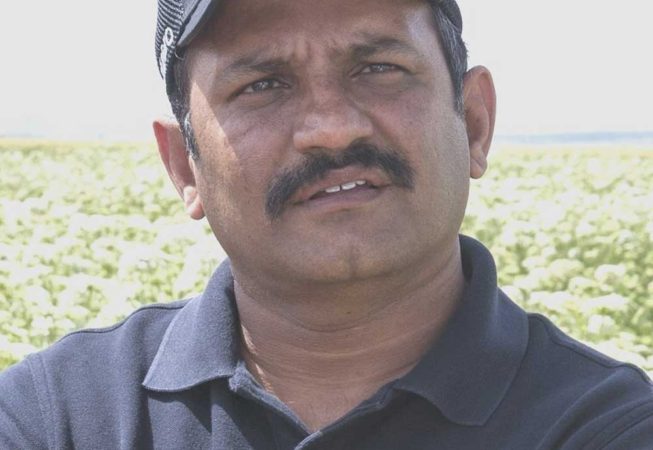Research Update from the OSU Honey Bee Lab
This presentation will predominantly focus on current research at Oregon State University Honey Bee Lab pertaining to honey bee health (varroa) and nutrition (pollen abundance and diversity). Few other ongoing miscellaneous honey bee research projects will also be discussed briefly.
Sunday Luncheon: Challenges in Varroa Control & Beekeeping Philosophies
For the past three decades, Varroa has been the most challenging parasite to tackle. In this presentation, various factors that have limited our ability to gain control over Varroa effectively will be discussed. Further, beekeeping philosophies of two distinct beekeeping groups (commercial and backyard beekeepers) will be discussed in the context of Varroa control, and how these philosophies may help or hamper Varroa control will be debated.
Dr. Ramesh Sagili is an Associate Professor in the Department of Horticulture at Oregon State University. He obtained his PhD in Entomology from Texas A&M University in 2007 specializing in honey bee research. His primary research focus is honey bee health, nutrition and pollination. Ramesh initiated the creation of Oregon Master Beekeeper Program and chaired the Oregon Governor’s Task Force on Pollinator Health. His research program addresses both basic and applied questions to improve honey bee health and nutrition, and hence majority of his research projects are collaborative efforts involving stakeholders (beekeepers and growers). He has authored several important research and extension publications including the popular extension publication and app titled “How to reduce bee poisoning from pesticides” that is being used by many beekeepers, growers and pesticide consultants/applicators in the country. He has received several awards including the Entomological Society of America’s Pacific Branch Research Award, Eastern Apicultural Society’s Outstanding Research Award and OSU Outreach and Engagement Award.

